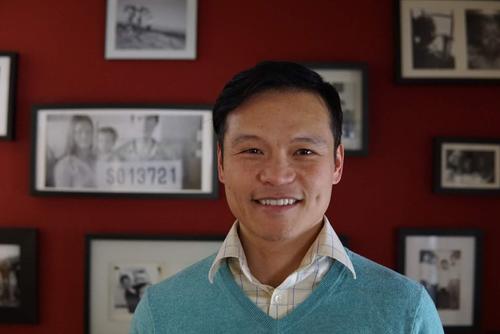
A recent survey found that nearly two-thirds of men avoided going to their doctor and 37% withheld information from their doctors about their health.
For Men’s Health Month in June, Cuong Pham from the Community-University Health Care Center answers questions about why it is important for men to have annual appointments and how to navigate health questions with their primary care provider.
Q: Why is it recommended for men to see a primary care physician for an annual check-up?
Dr. Pham: Annual check-ups help you stay feeling good and healthy. We want to prevent you from developing a chronic illness. Sometimes catching a health problem early before you can even feel it in your body, can give you more and better treatment options as well as cure the problem. It is also an opportunity to ask anything about your physical and emotional health with a person you can trust. Health information on the internet can be overwhelming or confusing — a doctor can sometimes be the quickest and easiest way to get your answer about your health.
Q: Why is it important for men to share their health information with their primary care provider?
Dr. Pham: There is never a dumb question or thought, especially when it's about your health. Health information that may seem big or small to you may affect how your doctor understands and assesses your health. For instance, new onset of constipation can be from a change in your diet or a serious new problem in your intestinal tract. A new headache might be from a change in stress or a serious neurological problem. So when you feel or notice something new or different, it is important for your doctor to hear it.
Q: Why do men feel uncomfortable talking about their health with a health care worker? How can we improve that?
Dr. Pham: Sharing private information to anyone is particularly hard., especially if it's with a doctor you have never met before. Who likes to tell their doctor what they do in bed, enjoys fast food, and hates running? So like you, I also feel vulnerable going to a doctor when I don’t usually share this information with my closest friends or loved ones. I recommend finding a doctor that you feel comfortable with, listens to you, and connects with your philosophy in health. You don’t have to stick with a doctor that was randomly given to you by your insurance or clinic. You get to choose and control who will help you with your health.
Q: What are examples of recommended annual visits that men should go to by age and common health issues?
Dr. Pham: I wish it was easy to list all the health issues by age that you absolutely need to see a doctor. Even colonoscopies have now changed from 50 years old to 45 years old for the average person. However, you may not realize that you are at higher risk for colon cancer and may need a colonoscopy even sooner. Lung cancer at 50 years old and prostate cancer at 55 years old are dependent on your health and preferences. Discussions about screening for high blood pressure, hepatitis, HIV, depression, high cholesterol and diabetes are often not based on your age but your other health conditions or family history.
Q: What are some common questions in your practice you receive from your male patients?
Dr. Pham: Some common questions I hear during annual visits are:
- My energy is down and life is not as fun. What can I do?
- I am not happy with my body. How can I change that?
- My sex life is not the same anymore. What is wrong with me?
With all these questions, I normalize to people that these are concerns and questions that many men bring up. You are not alone when you have these questions.
Cuong Pham is a practicing physician at Community-University Health Care Center and an assistant professor at the Medical School at the University of Minnesota, where he serves the underserved citizens of Minneapolis. Pham also works at inpatient wards at the M Health Fairview University of Minnesota Medical Center.
-30-
- Categories:
- Health
- Population health





